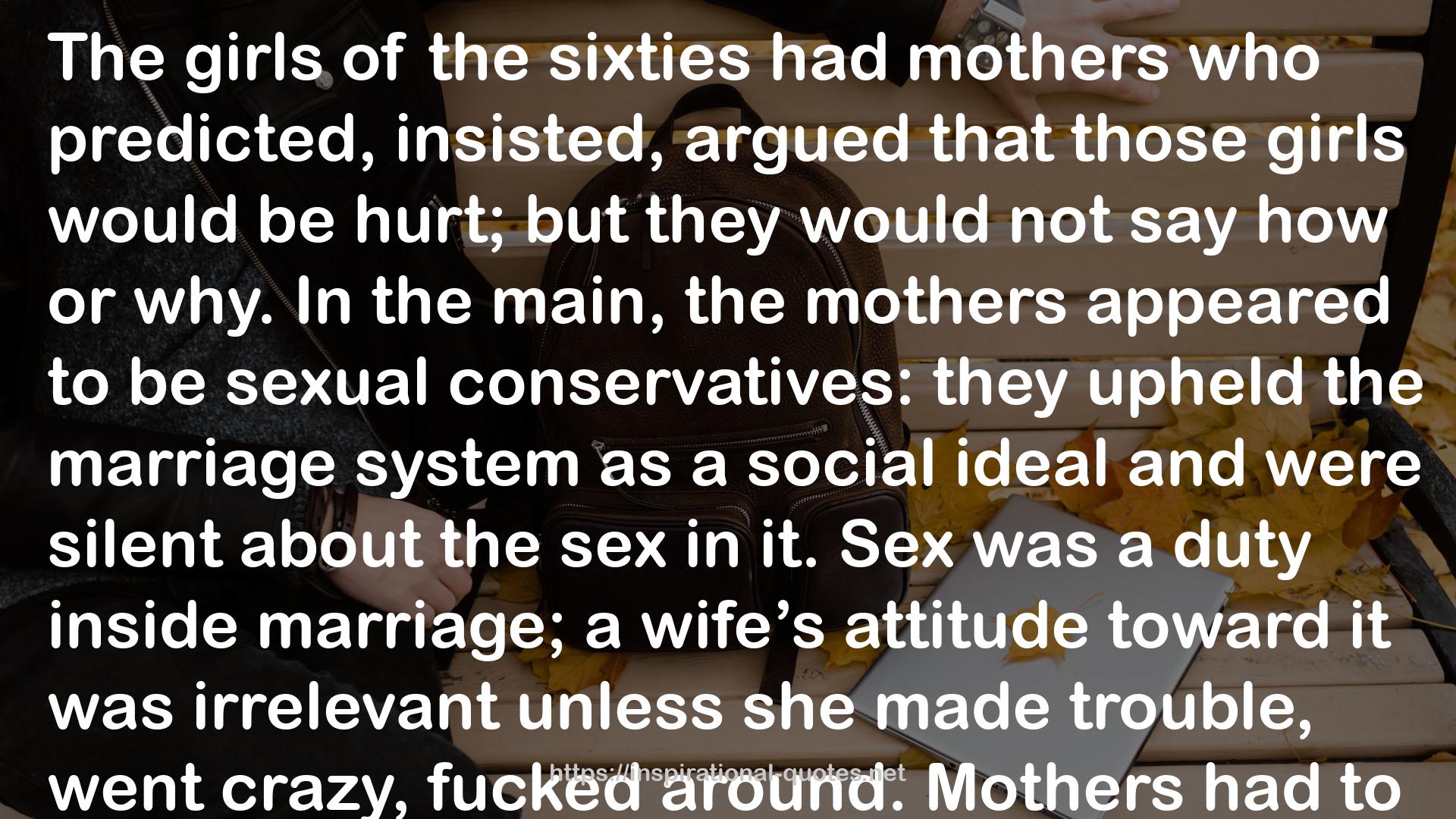" The girls of the sixties had mothers who predicted, insisted, argued that those girls would be hurt; but they would not say how or why. In the main, the mothers appeared to be sexual conservatives: they upheld the marriage system as a social ideal and were silent about the sex in it. Sex was a duty inside marriage; a wife’s attitude toward it was irrelevant unless she made trouble, went crazy, fucked around. Mothers had to teach their daughters to like men as a class—be responsive to men as men, warm to men as men—and at the same time to not have sex. Since males mostly wanted the girls for sex, it was hard for the girls to understand how to like boys and men without also liking the sex boys and men wanted. The girls were told nice things about human sexuality and also told that it would cost them their lives—one way or another. The mothers walked a tough line: give the girls a good attitude, but discourage them. The cruelty of the ambivalence communicated itself, but the kindness in the intention did not: mothers tried to protect their daughters from many men by directing them toward one; mothers tried to protect their daughters by getting them to do what was necessary inside the male system without ever explaining why. They had no vocabulary for the why—why sex inside marriage was good but outside marriage was bad, why more than one man turned a girl from a loving woman into a whore, why leprosy or paralysis were states preferable to pregnancy outside marriage. They had epithets to hurl, but no other discourse. Silence about sex in marriage was also the only way to avoid revelations bound to terrify—revelations about the quality of the mothers’ own lives. "
― Andrea Dworkin , Right-Wing Women
